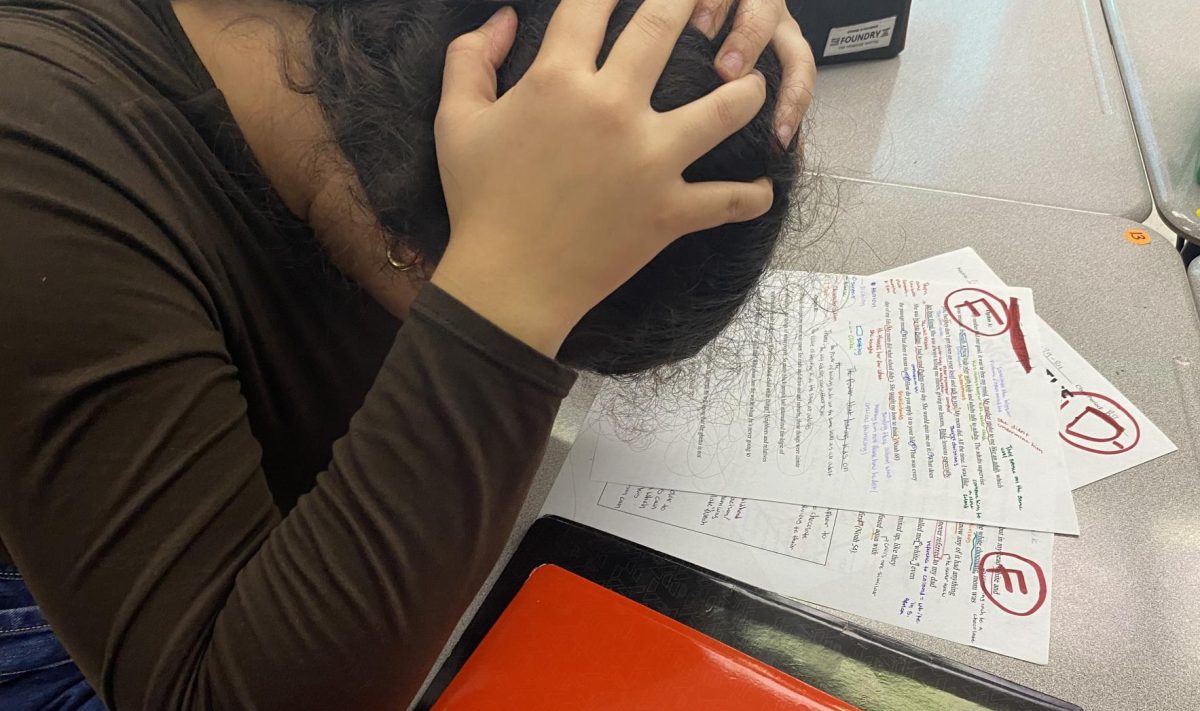For the past two years, AHS’ grading policy maintained that summative assessments were worth 90% of a student’s grade and formative assessments were worth 10%.
Before this, the grading system consisted of 60% summatives and 40% formatives.
This year, students must adjust to another change in the grading system: 70% summatives and 30% formatives.
Current students may recall that last year, with formatives being only 10% they were very easy to ignore.
The stress lay entirely with summatives, as one small mistake could be fatal to your GPA.
Some students enjoyed it while others were not as fond, and there were even those that started to warm up to 90/10 just as it changed.
But was it the change we really needed?
Students present two main arguments.
On one hand, summatives will not be as domineering.
Since they are now worth 70%, they will not bring your grade down as much if you were to score poorly.
Additionally, the completion of formative assignments will be incentivized since they further boost a students’ grade due to their higher weight.
In an anonymous survey sent out via Google Forms, many students expressed their approval towards the new rule.
“I think it really drives me to actually do my formatives,” an anonymous sophomore said. “I’m actually getting forced to do the formatives and they’ve helped me learn in order to get a good score on the summative.”
Teachers have also welcomed this change with open arms.
“I think it’s a good change. I’ve always felt that summatives should weigh more than formatives,” English teacher Stephanie Hanson said. “ I think this gives more weight to the formatives so that students are less likely to just blow them off.”
On the other hand, students believe 90/10 was already perfect.
As the focus was more on the summatives, students were able to hone in on studying for their tests and better applying what they learned in class.
This also enabled many to not submit formatives due to their lack of impact on grades. It wasn’t really worth it to put the effort into doing them.
“The fact that you can’t retake formatives is what sucks,” an anonymous junior said. “If I do bad on something worth 30% I’d notice it a lot more than if it was just 10%.”
Other’s reminisce, “90/10 made me less anxious and I’d rather study very hard for tests than try very hard on every formative since they’re worth a lot of my grade now,” an anonymous senior said.
Junior Hannah Tran argues that if FCPS were to change the policy, 70% and 30% were not the right percentages to use.
“90/10 was better because focusing on one thing rather than multiple was more manageable,” Tran said. “They should’ve done 80/20 instead because 70/30 is a big jump from what it was originally.”
It’s important to note that this change was due to the various students, teachers, administrators, parents/caregivers, school-based administrators, and central office staff that advocated for it. FCPS didn’t decide to be frisky on updating the grading system.
In an email sent to all teachers, the Chief Academic Officer of FCPS states how the change of the grading system was due to these individuals who made up the Secondary Grading Advisory Committee.
“[The Secondary Grading Advisory]’s charge was to evaluate recent changes in grading policies and to continue examining our current guidance to determine the need for any additional changes. The overall aim was to increase consistency and clarity in grading practices across FCPS,” the email stated. “During their review, the committee examined relevant research, district data around grade distribution, as well as data from focus groups with staff, students, and parents/caregivers held at a subset of middle and high schools.”
With the various opinions from the student body, many have come to a clear conclusion: a change in the grading system may have been the best course of action to take.
70/30 gives a larger percentage to formatives to nudge one’s grade in the right direction, allowing them to improve and actually see the impact of their work and performance in class.
At the same time, a little weight will be lifted off students shoulders and they won’t have to worry as much for summatvies, and that little amount of breathing room is good enough.
70/30, the new grading policy
Students adapt as the grading policy shifts, but are all in favor?
September 23, 2024
Categories:
With the 70%/30% grading system, many students struggle to keep up with assignments in their rigorous courses
Story continues below advertisement
0
More to Discover
About the Contributors

Jasmin Dinh, Co-In-Depth Editor
Junior Jasmin Dinh is on her second year as part of the A-Blast staff, returning to her position as one of the co-editors for the In-Depth pages. She enjoys spending time with her friends and participating in clubs like SEASA and VSA. She is also the Vice President of the class of 2026. She likes to travel and has visited many countries around the world, such as Jamaica, Norway, and China.

Rossy Soto, Co-In-Depth Editor
Junior Rossy Soto is in her second year working on the A-Blast as a co-In-Depth editor, and was previously one of the co-editors for the Arts Page. She is the founder and president of the Annandale photography club, she hopes to join other clubs. She enjoys designing graphics, photography, listening to music, thrifting and indulging in time with friends and family.








